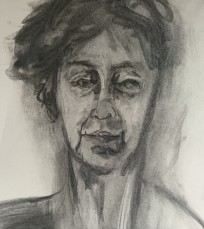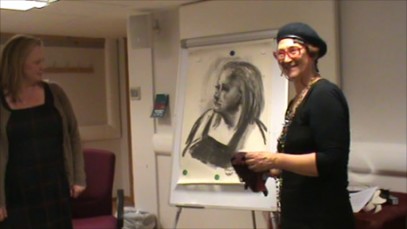Blog post
The demands of beauty
This blog post was written following the first Beauty Demands workshop. The second workshop will focus on the role of medical professionals in developing, offering and carrying out cosmetic procedures. We are currently calling for papers from graduate students to present at the workshop (deadline 17 April).
Before I went to the first Beauty Demands workshop in Warwick earlier this month, I hadn’t really given much thought to why I feel the need to shave my underarms. But when you think about it, it is an odd thing to do. And on that note, why do I spend large amounts of money and time on other (sometimes painful) beauty procedures? I haven’t taken things to the more extreme end of the spectrum and undergone any surgical procedures to improve my appearance (yet) but more and more people are. Over 50,000 people in 2013 according to the British Association of Aesthetic Plastic Surgeons in fact. Why?
Beauty Demands is an AHRC-funded project that aims to bring together academics, practitioners and policy-makers to consider the changing requirements of beauty. The project will explore whether beauty image is becoming ever more demanding of women, and whether cosmetic procedures such as surgery which were once regarded as exceptional are now regarded as normal or even required in some contexts. There will be three more workshops taking place over the next year or so, alongside virtual debate and sharing of ideas and research.
But back to the first workshop and underarms. Clare Chambers, a philosopher from the University of Cambridge, showed how our feelings of being under the gaze of society can exert power over us; power that the advertising industry uses to its advantage. See Clarke’s “Life’s one long catwalk” campaign or Dove’s “So no one can see your underarms, right?” (it looks like I need to moisturise as well as shave). Selling shoes or deodorant in this way doesn’t seem too problematic, but when this is extended to potentially harmful beauty practices there is more to question. Clare asked whether we are really exerting free choice to undergo a surgical cosmetic procedure if the decision is being made under the influence of society. Not only that, the pressure we feel from society to conform to beauty norms can be considered racist, argued Herjeet Marway, a lecturer from the University of Birmingham, because they are humiliating for women that do not fit the white ‘ideal’ of fair-skin, narrow nose and fine hair.
However, if you support people’s right to choose and have control over their own body, regulation may be one way to empower people to transform themselves in a safe and just environment. Lawyers Melanie Latham from Manchester University and Jean McHale from Birmingham Law School discussed the regulations governing the cosmetic procedures industry in the UK and abroad. Despite a major health scandal involving faulty breast implants in 2010 and a government-commissioned review of regulation, the cosmetic procedures industry in the UK remains largely unregulated. This is in contrast to French law, which bans the advertising of cosmetic procedures to the public and introduced a cooling-off period after the initial consultation, and Australian law which prohibits under-18s from having certain procedures. One barrier to the Government taking further action, it was suggested, might be the lack of solid evidence of benefits and harms caused by cosmetic procedures, which is hard to gather in an unregulated environment.

One session, that took place at the end of the first day, stood out from the others. Portrait artist Annabel Mednick encouraged us to assist her in layering charcoal images of herself, and of the workshop host Fiona MacCallum, in order to get us to confront how we see ourselves and how we are seen by others. The result was not only a fascinating discussion of what beauty means, especially as we age, but also beautiful portraits of two women in the room (which was at least a consolation prize for Fiona who was subjected to a group discussion of her appearance).

The Nuffield Council on Bioethics has had an interest in this area for some time (see the report of a roundtable meeting we hosted on cosmetic procedures in January 2014) and, as one of the project partners, we will be hosting the next workshop in London in June. This workshop will focus particularly on the role of medical professionals in developing, offering and carrying out cosmetic procedures, and we are currently calling for papers from graduate students to present at the workshop (deadline 17 April).
Later this year, the Council will be embarking on its own complementary project to explore the ethical questions raised by the rise in the number of people undergoing cosmetic procedures, focusing on non-reconstructive procedures used to normalise or enhance appearance.
We plan to consider the potential benefits and harms caused by cosmetic procedures, both to individuals and society more widely, the responsibilities of different parties involved, and the ethical acceptability of different areas of cosmetic practice. Through a variety of activities, we hope to gather views and evidence to inform consideration of these issues.
At this stage, we are interested in hearing from anyone who would like to contribute to the project, including medical professionals, patients and academics with an interest in the topic. We would also like to hear about any other work being undertaken in the area.
Please contact Laura Medhurst lmedhurst@nuffieldbioethics.org if this applies to you.



Comments (1)
Sam Wilson
This beauty myth doesn't make any sense, it's nothing but a mindless hoax, and it's on us to decide if we want to fall for the farce or stand up for what's right. Great article. Thanks for sharing.
Join the conversation